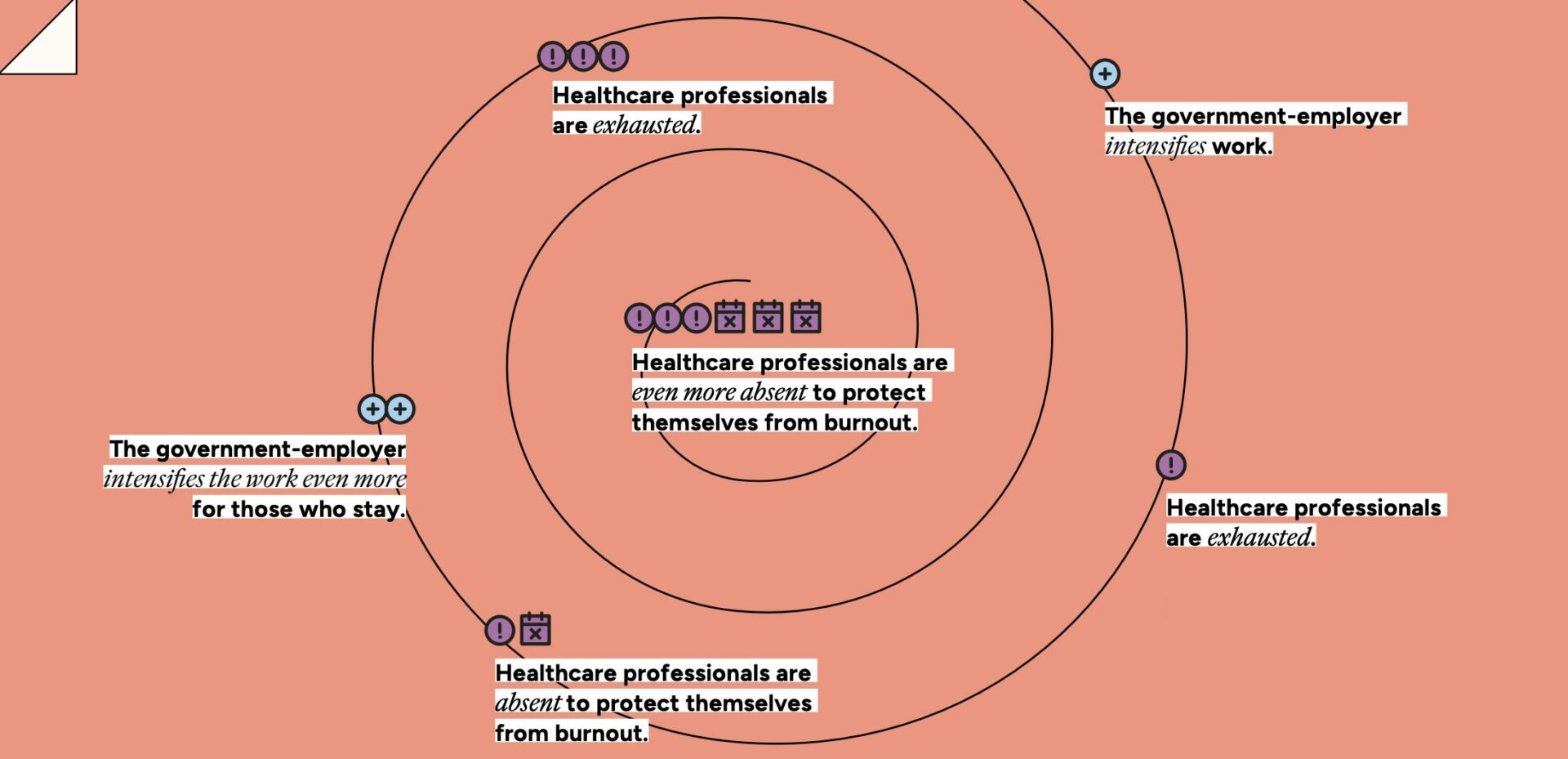Workforce shortage or healthcare professional exodus?
The healthcare professional shortage is a reality that affects work in the field. To justify this situation, the government claims there is a “labour shortage,” which allows it to absolve itself of responsibility for the catastrophic state of the RSSS. By saying there is a shortage, it frames the problem as inevitable rather than as the result of many years of bad political decisions.
The vicious circle of the intensification of work
In reality, since 1990, governments have turned to a management approach that aims to “do more with less” to not “waste” resources. That means teams are intentionally minimally staffed, there’s an intensification of work for healthcare professionals and a drop in care quality for patients.
So, the health network is facing a work crisis.

Some data on the exodus of healthcare professionals
The exodus
The number of nurses registered with the Ordre des infirmières et infirmiers du Québec (OIIQ) has been increasing for several years. But more and more are leaving the public network: their presence in the RSSS dropped from 85% to 72% between 1992 and 2022.
The shortfall
10,800 nurses would be working in the RSSS today if the proportion from 1992 had been maintained. This would have been a significant help given the ageing population and increasingly complex care needs!
The next generation
43% of nurses under age 35 who entered the profession in 2022 left in the same year. This data is worrying regarding the retention of the next generation of nurses.
Did you know that? Since 2018, nearly 20 clinical perfusionists have left Quebec to go practice elsewhere. Considering that there are approximately 75 in the RSSS, this number represents a significant exodus. They leave because of the major pay gap with Ontario and the United States, and the extremely difficult working conditions in Quebec. For example, they are often obliged to work intensive on-call hours in addition to their regular work schedule.
Other impacts of the work crisis
The work crisis is also reflected in the obligation for healthcare professionals to perform “any other related tasks” at the request of employers. Respiratory therapists experience this with the infamous ‘technical units,’ statistics they are required to compile but which add no value to patient care.
The impacts of this crisis are being felt in occupational health and safety: the number of licensed practical nurses absent due to disability and workplace accidents is alarming, and inadequate risk prevention by employers is partly to blame.
Courageous political choices to break the vicious cycle
To put an end to the exodus and other consequences of the work crisis, we must stop using the “shortage” as an excuse for inaction. By prioritizing adequate workforce planning, in particular through the implementation of safe ratios and good working and practice conditions, decision-makers would be focusing on long-term solutions to break the vicious cycle.
It’s a political choice that requires courage, no doubt about it! The FIQ will continue to fight to build a quality health and social services network.

